In today’s world, the working process of businesses and marketing strategies has changed, but one thing has not changed, i.e., data modeling and research methods. Understanding the data models is important to making the right business decisions.
That’s why, In this article, we’ve handpicked the top 12 expert’s written data modeling books that help you to gain useful knowledge in this field.
Let’s get started.
What is Data Modeling?
Data Modeling is the process of making a visual representation of any information by using text, symbols, diagrams, or workflow. It’s a flowchart that shows data entities and the relationship networking entities.
This visual representation is mostly used in businesses to understand the data requirements and how data will be stored, accessed, shared, leveraged, and updated. It helps in the business process, making strategies and right business decisions.
Can you Learn Data Modeling From Books?
Books are one of the simplest and most effective ways to gain knowledge about something. If you want to know about data modeling, reading experts’ written data modeling books is the best decision.
Books provide content in a well-organized manner in chapters. So it can be easily readable by beginners to learn detailed concepts.
Top 12 Best Data Modeling Books
Here are the top 12 best-handpicked data modeling books that help you to gain details about data modeling as an expert.
1. The Data Warehouse Toolkit: The Definitive Guide to Dimensional Modeling

Originally Published: 2013
Author: Ralph Kimball
This book is a comprehensive guide on dimensional modeling. This book covered many useful concepts, including the introduction of dimensional modeling, dimensional modeling techniques, best practices, data warehouse, business intelligence, patterns, ETL techniques, and different types of case studies like electronic commerce, retail sales, customers relationship, inventory, accounting, order management, financial, healthcare, etc.
This book covers:
- Dimensional modeling techniques
- Data warehouse
- Business intelligence
- ETL techniques
- Case studies on electronic commerce, retail sales, and much more.
By reading this book, you’ll gain useful knowledge about dimensional modeling, powerful techniques, and fundamentals of design recommendations.
2. Data Modeling Made Simple: A Practical Guide for Business and IT Professionals
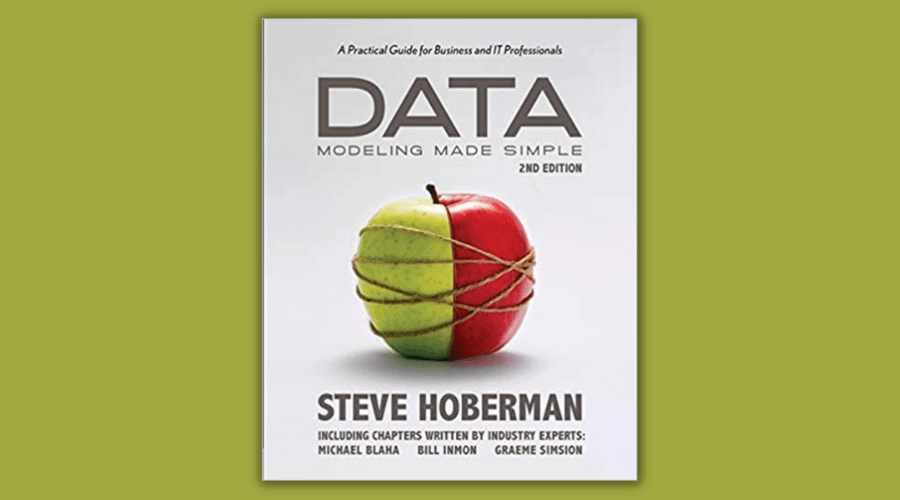
Originally Published: 2009
Author: Steve Hoberman
It’s a beginner guide that provides complete details about data modeling, its types, and practical knowledge of data modeling concepts. This book covers concepts in a readable style that anyone can easily learn from scratch. It’s a book that anyone is required to know about data modeling and includes data modeling components and physical/logical data models.
In many organizations, data issues are happening regularly, and learning how to manage the data at the right time is essential.
By reading this book, you’ll learn about data modeling, managing, and validating.
3. Designing Data-Intensive Applications
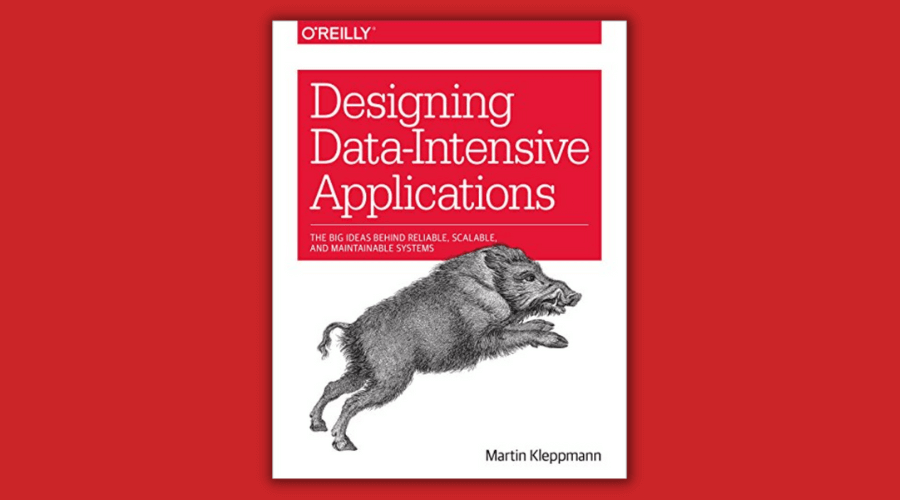
Originally Published: 2017
Author: Martin Kleppmann
This is a practical guide on designing data-intensive applications by examining the pros & cons of various technologies for storing and processing data. It’s a highly recommended book for software engineers, technical managers, and architects to learn and implement these ideas and use data in modern applications.
This book gives a clear idea about a reliable, scalable, and maintainable system by understanding the fundamentals of data-intensive applications, data sharing, and derived datasets.
By reading this book, you’ll learn about the architecture of data systems and ways to integrate data-intensive applications.
4. Data Modeling Essentials

Originally Published: 2004
Author: Graeme Simsion
This book covers all the essential concepts required to learn about data modeling. For students – it’s the best book to understand the fundamentals of data modeling and other important concepts. It elaborates the concepts most easily and helps students to learn concepts faster with case studies and real models.
This book covers various important topics such as:
- Data-centered perspective
- Importance of data models
- Data design stages
- Alternative approaches
- Terminologies about data modeling
By the end of this book, most of the concepts will be easily understood and have the right knowledge about data modeling.
5. The Data Model Resource Book: Universal Patterns for Data Modeling
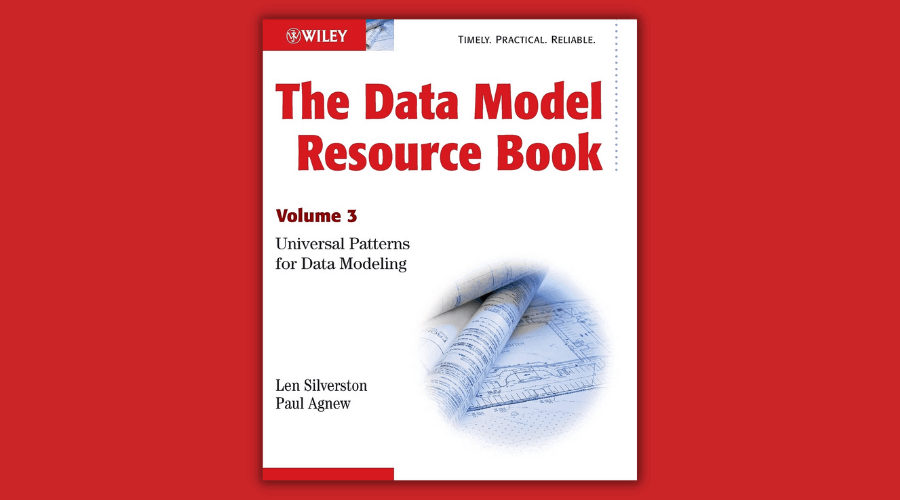
Originally Published: 2009
Author: Len Silverston and Paul Agnew
This book comes with all the answers to your questions related to data modeling. It covered all the major concepts related to data modeling, including fundamentals, patterns of data modeling, contact mechanism, classification of data, organizations of similar data, and many more.
The authors of this book has years of experience in data management and tries to elaborate on each concept in the most friendly way that beginners easily understand experts.
By reading this book, you’ll have good knowledge about data modeling, its categories, and patterns that affect data modeling efforts.
6. Data Modeling: A Beginner’s Guide
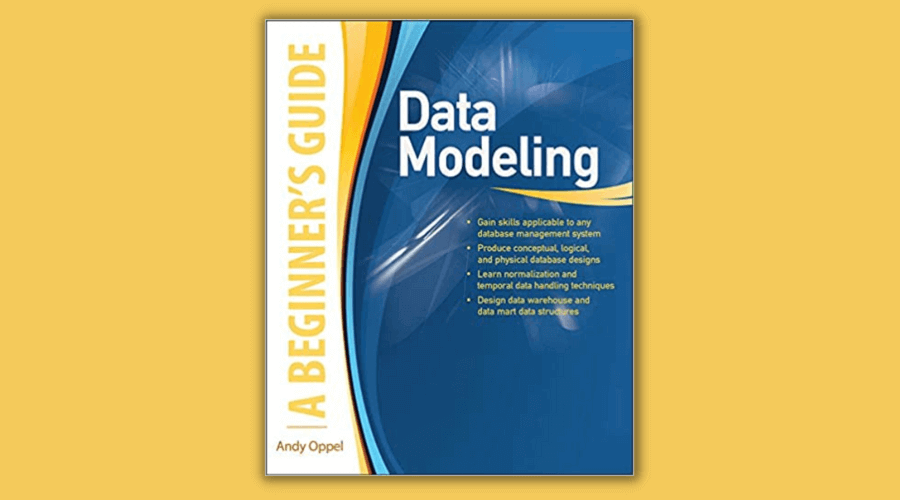
Originally Published: 2010
Author: Andy Oppel
As its name implies, it’s a beginner’s guide that covers the complete fundamentals of data modeling in the simplest explanation.
This book covers:
- Data modeling
- Database management system
- Product conceptual
- Logical, and physical database design
- Normalization and handling techniques, etc.
For beginners who want to know about data modeling, this book is highly preferred to clear the fundamentals, techniques, and basics of data modeling. It’s a step-by-step section for better understanding the concepts and shows many visual representations and tables for easy understanding.
7. Data Model Patterns

Originally Published: 2011
Author: David Hays
It’s one of the advanced data modeling books that gives detailed insights about data modeling patterns, techniques, and how to create and implement data models to make a good model for a business.
This book also shares the importance of data modeling in different sectors, including accounting, manufacturing, and material requirements. These data models are essential for an organization to create and implement to find the best position solutions.
By reading this book, you’ll learn about data models and data modeling patterns in the most effective way.
8. NoSQL and SQL Data Modeling: Bringing Together Data, Semantics, and Software
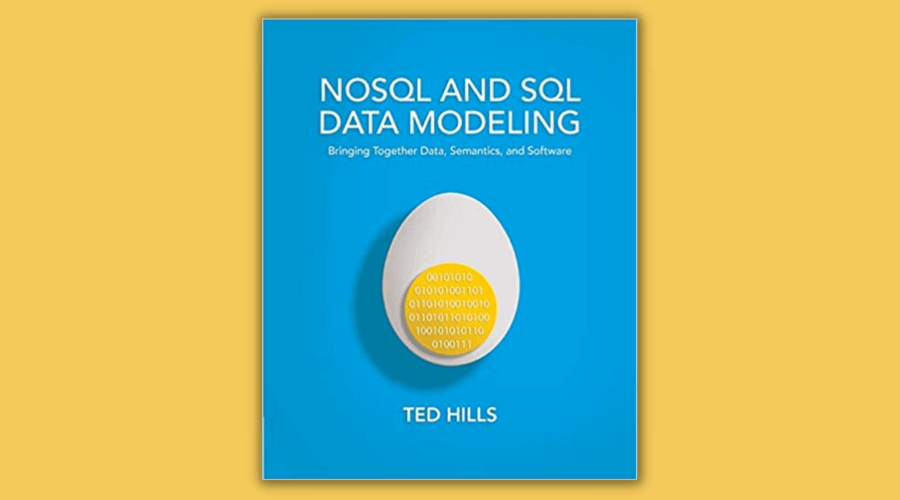
Originally Published: 2016
Author: Ted Hills
This book is an updated version with new database technologies to understand the data faster and more effectively.
This book covers:
- Objects modeling notation (COMN)
- Logical data design,
- Concrete NoSQL and SQL documents
- Relational database implementations, etc.
By reading this book, you’ll understand the simple & familiar graphical notation of COMN with its shapes and four-line styles, how to think about objects in the real world, and express logical data design for implementation.
9. Data Modeling for Azure Data Services
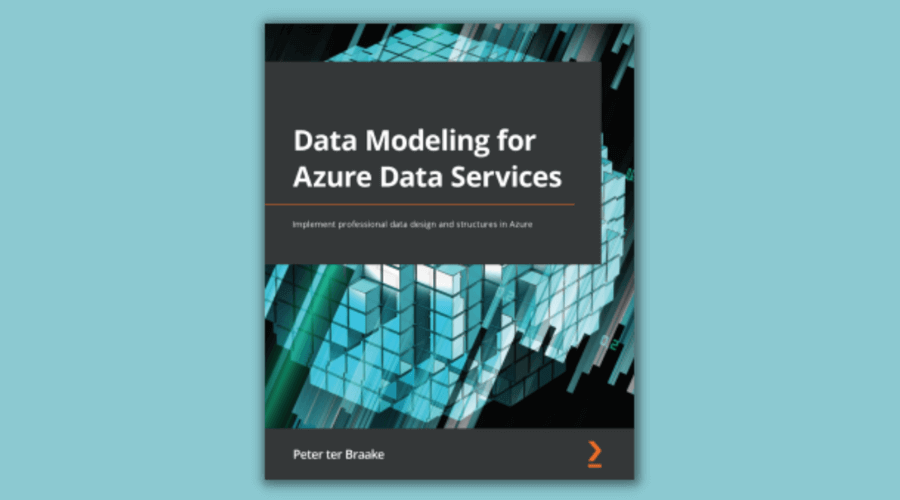
Originally Published: 2021
Author: Peter ter Brake
If you’re interested in data modeling specifically for azure data services, this book can be a one-stop solution.
This book covers:
- How to design a NoSQL database
- How to provision and implement Azure SQL DB, Azure Cosmos, Azure Synapse SQL
- Data analytics
- Azure data lake
- Azure SQL data warehouse
- Dimensional modeling, etc.
By reading this book, you’ll have a solid knowledge of azure data services and the best implementation process.
10. The Data Modeling Handbook: A Best-Practise Approach to Build Quality Data Models
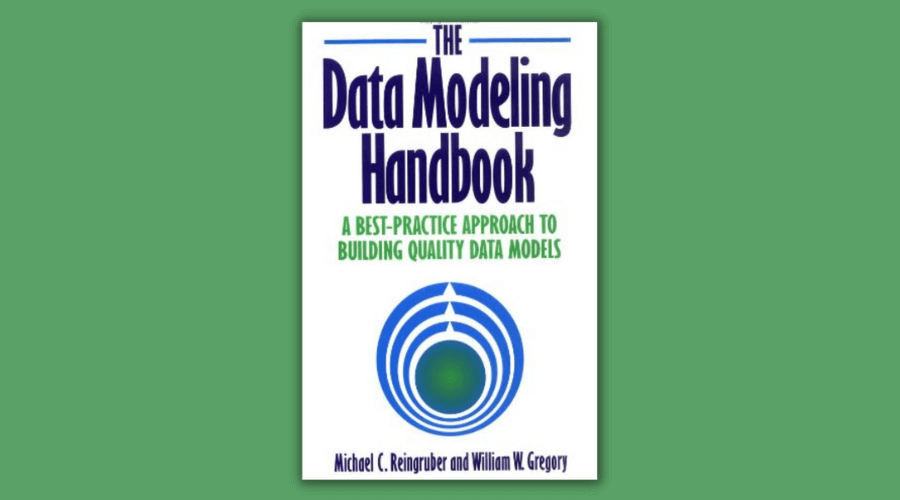
Originally Published: 1995
Author: Michael C. Reingruber
This book is most preferred, beginner-friendly, and easy to understand the concepts of the data modeling handbook. This book gives you a clear idea about data modeling, useful data models, and all the rules in different notations like IDEF1X, Martin, Chen, and Finkelstein. Also, learn about how to use case tools to build qualitative models.
There’s no-nonsense content in this book, and it’s a complete practical handbook that describes the content most simply and effectively.
By reading this book, you’ll learn all the concepts of data modeling in detail and be able to answer all the queries related to data modeling.
11. Data & Reality: A Timeless Perspective on Perceiving & Managing Information in Our Imprecise World

Originally Published: 2012
Author: William Kent
This book helps readers to clear their misconceptions about data modeling and covers the concepts in detail.
This book covers:
- Data management problems
- Data models
- Relational models
- Elementary concepts
- Hidden insights on NIAM, etc.
Whether you’re a data processing expert, data analyst, data modeler, database administrator, or data architect, you’ll learn all the important data modeling fundamentals with the book’s simplest examples.
12. Agile Data Warehouse Design: Collaborative Dimensional Modeling, from Whiteboard to Star Schema

Originally Published: 2011
Author: Lawrence Corr and Jim Stagnitto
Agile Data Warehouse Design is a popular book with a step-by-step guide for capturing data warehousing/business intelligence requirements in detailed concepts.
This book covers:
- Data modeling
- Business intelligence
- BEAM (business events analysis & modeling)
- Agile methodologies
- Fact dimensional diagrams, tools & techniques
- How to implement dimensional modeling solutions
By reading this book, you’ll learn all the concepts of agile data warehousing concepts and become an expert in this field.
Final Words
Data Modeling is one of the essential parts of any software project to understand database structure and how an application will be built upon it. By reading data modeling books, you can become an expert in this field and grow your career.
There are hundreds of data modeling books available but we’ve handpicked top 12 data modeling books to gain useful knowledge about data modeling and make your career.
10Pie Editorial Team is a team of certified technical content writers and editors with experience in the technology field combined with expert insights. Learn more about our editorial process to ensure the quality and accuracy of the content published on our website.

